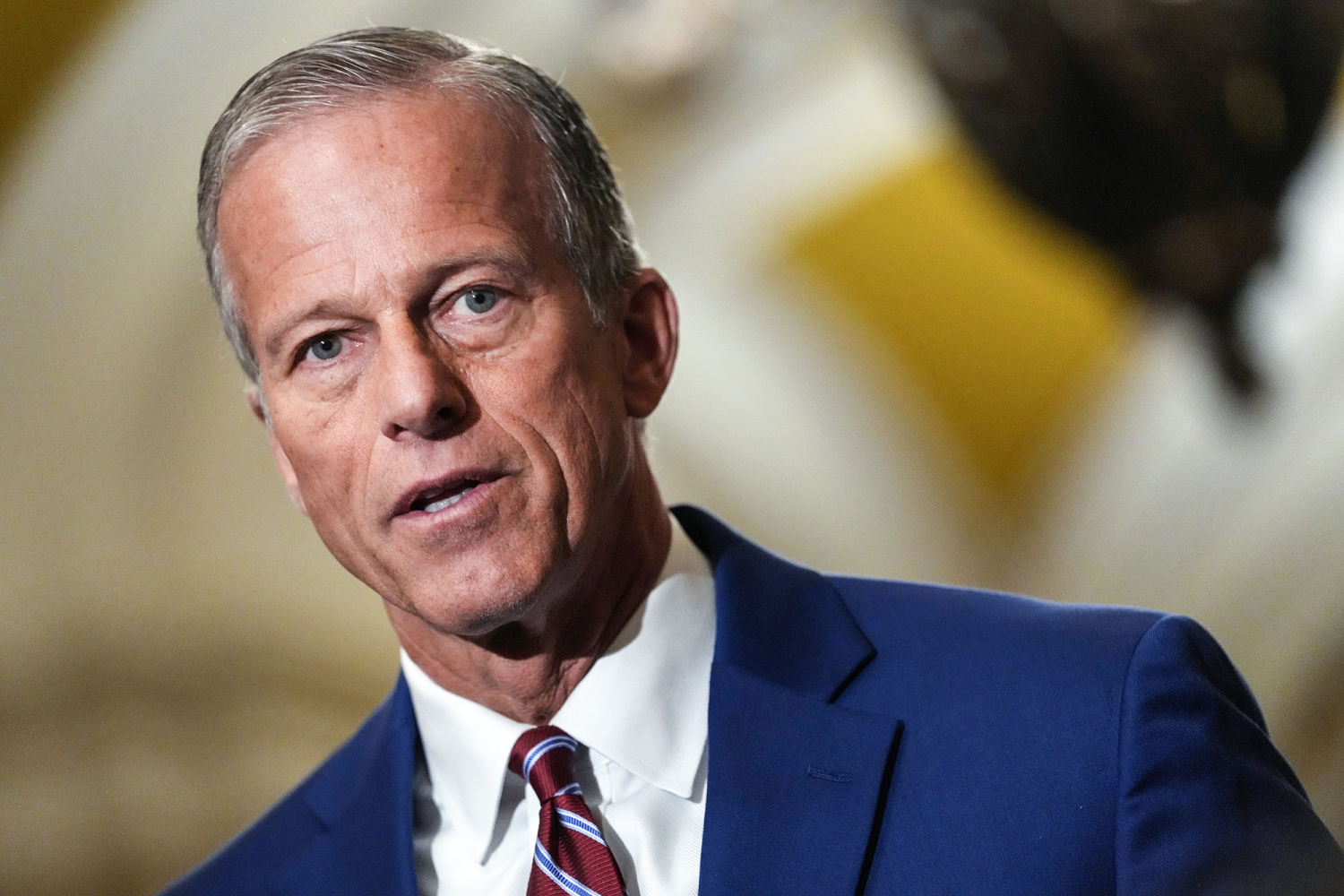

WASHINGTON — Senate Republicans are pushing forward with a simple-majority vote as early as Wednesday evening to undo an electric vehicle mandate in California, which Democrats and the nonpartisan Government Accountability Office say should be subject to the 60-vote filibuster rule.
The move turns a battle over clean energy policy into a high-stakes clash over the fate of the filibuster, with consequences for the future of the Senate.
The vote would bypass the 60-vote rule, which can be done in limited circumstances. Democrats warn that if Republicans proceed in defiance of the Senate parliamentarian, who has sided with GAO in the dispute, they’d be setting a precedent to nuke the legislative filibuster and turn the Senate into a majority-vote body.
“It’s going nuclear, plain and simple. It’s overruling the parliamentarian,” Senate Minority Leader Chuck Schumer, D-N.Y., told reporters on Tuesday.
In a warning to Republicans, Schumer said that when Democrats are in charge next, “What goes around comes around.”
The unusual clash carries tension inside both parties. Democrats campaigned in 2024 on scrapping the filibuster to pass major bills if they won, while Senate Republicans vowed to protect the 60-vote rule, even after they captured the White House and control of Congress last fall.
Senate Majority Leader John Thune, R-S.D., insisted he isn’t trying to end the filibuster and that this move applies only to a narrow and particular case. He has argued that the parliamentarian is wrong to defer to GAO on this question, saying that under the Congressional Review Act, this resolution is subject to a simple-majority threshold to repeal regulations.
“Democrats are attempting to derail a repeal by throwing a tantrum over a supposed procedural problem, the California waivers are not rules Democrats claim, and thus the Congressional Review Act cannot be used to repeal them,” Thune said, referring to the Biden administration’s move to permit California to enact the rules in question. “I think we need to act to ensure that this intrusion into the Congressional Review Act process doesn’t become a habit, and that the Senate doesn’t end up transferring its decision-making power on CRA resolutions to the Government Accountability Office.”
Thune said the issue “is not about destroying Senate procedure or any other hysterical claim the Democrats are making.”
As Republicans have warned Democrats in the past, breaking precedent in the Senate has a way of boomeranging back on the party that starts it.
Democrats say that ignoring the in-house referee in this case will open the door for future majorities to do the same on other issues.
In a new memo to colleagues, Senator Alex Padilla, D-Calif., argues the move would “be the first time in Senate history that a majority overruled the Parliamentarian to pass a bill by a majority vote, bypassing a filibuster.”
The vote puts Republican senators on the spot, as many of them have vowed not only to protect the filibuster but to abide by the parliamentarian’s rulings.
“If something is directly presented to the parliamentarian by way of a parliamentary inquiry, she answers one way and then you have an effort to override that, that’s a concern, right?” Senator Lisa Murkowski, D-Alaska, told NBC News, noting that she supports undoing the EV mandate in California but does not support overruling the parliamentarian.
Sen. Susan Collins, R-Maine, said she plans to support the resolution to undo the electric vehicle mandate, despite her history of supporting the filibuster rule.
Sen. John Curtis, R-Utah, has said he’d oppose any effort to overrule the parliamentarian in the budget reconciliation package. But he said he’s fine with the decision to proceed to undoing the California mandate.
“I walked through it a lot, spent a lot of time on it,” Curtis said. “Count me in the camp that just has been very thoughtful to make sure that what we’re doing doesn’t set a precedent that we’re not happy with.”
If Republican leaders structure the process so members vote against the GAO decision without directly going after the parliamentarian, Democrats call that as a distinction without a difference.
“That’s nonsense,” said Sen. Adam Schiff, D-Calif. “There have been dozens of times where Republicans have gotten opinions from the GAO. This is just their way of trying to put a favorable spin on breaking their word. Leader Thune in his inaugural speech as majority leader said he would not overturn the parliamentarian. The parliamentarian has ruled. He is now advocating overturning the parliamentarian. And there’s just no way to put a positive gloss on that.”
Asked if she worries the vote would open the door for Democrats to try and eliminate the filibuster, Sen. Shelley Moore Capito, R-W.Va., said: “Well, they already tried that.”
When Democrats had full control in 2021 and 2022, they tried to pierce the legislative filibuster to pass a federal voting rights law — but were stymied by internal opposition. They also faced pressure from liberals to ignore the parliamentarian to raise the minimum wage in their party-line bill, but they declined for fear of the precedent it would set.
Now, some Democrats say the GOP move would strengthen their case to smash the filibuster in the future.
“The silver lining here is that Republicans would be overruling the parliamentarian by majority vote, which is one step closer to nuking the legislative filibuster,” Adam Jentleson, a longtime former Senate Democratic aide who wrote a book criticizing the filibuster. “Democrats won’t like the policy outcome here but there’s nothing they can do to stop it, so they might as well pocket the procedural marker and use it when they are back in power to pass their agenda on majority-rule votes.”
 Latest World Breaking News Online News Portal
Latest World Breaking News Online News Portal






